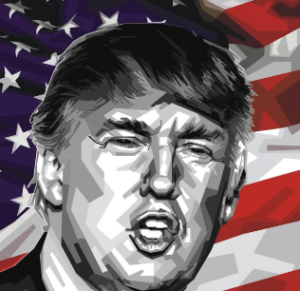$FTSE $USD $GBP
#UKEconomy #TradePolicy #FreeTrade #GlobalMarkets #Protectionism #USImports #Tariffs #Chancellor #EconomicOutlook #SupplyChain #StockMarket #Geopolitics
UK Chancellor is expected to advocate for the benefits of free trade, positioning the UK’s post-Brexit future as a more open and global-focused economy. This rhetoric comes at a critical juncture as the global market faces potential shifts due to protectionist policies being voiced by the United States, particularly under the Trump administration. The impending escalation of tariffs could create ripple effects in the international trading system, and the fear of localized protectionism from the US is pushing economies like the UK to strengthen their global trade relationships. The imposition of tariffs of up to 20% on all imports into America threatens not just transatlantic trade relations, but could also impact the EU, China, and emerging markets, reshaping critical global supply chains.
The US protectionist stance could significantly alter trade routes and benefit sectors that are more insulated from these changes or have diversified trade portfolios. The UK’s approach intends to present itself as a welcoming destination for businesses, counterbalancing the inward turn that some nations, particularly the US, are making. Investors in UK markets such as $FTSE are closely monitoring these developments, as any shifts in trade policies could lead to fluctuations in both currency pairs like $GBP and major commodity prices. With the US dollar $USD potentially strengthening due to rising internal production incentives, there could be a weakening of demand for foreign goods entering the US. This dynamic might very well lead to inflationary pressures in the US, as companies and consumers adjust to more expensive imports.
The financial markets are particularly sensitive to these geopolitical moves, as they can directly affect global stock exchanges and currency valuations. Tariff impositions, if enacted, would shift the landscape for multinational corporations—many of which rely on cross-border trade. Supply chain constraints could also wreak havoc on earnings reports, especially for sectors that are heavily reliant on global inputs like technology, automobiles, and consumer goods. The crypto market could also experience spillover effects, as investors often rotate into digital assets like Bitcoin during periods of elevated geopolitical uncertainty and when traditional markets seem volatile.
In conclusion, while the UK is promoting free trade, the US is flashing signs of economic protectionism, setting the stage for a potential tug-of-war between global market openness and nationalistic trade policies. The longer-term impacts will largely depend on whether these policies are fully implemented and how other major economies choose to respond. Investors and market participants should keep a close eye on further developments, as adjustments in trade agreements or tariff implementations can have profound repercussions across various asset classes and sectors worldwide.










Comments are closed.